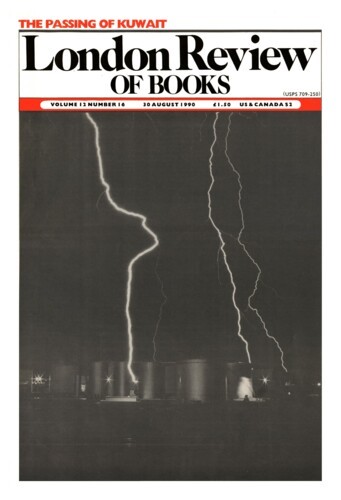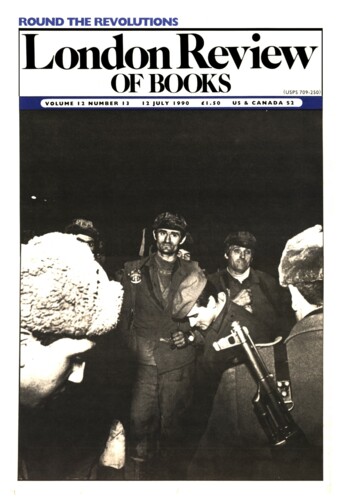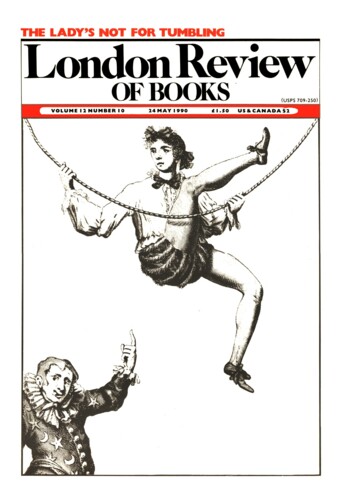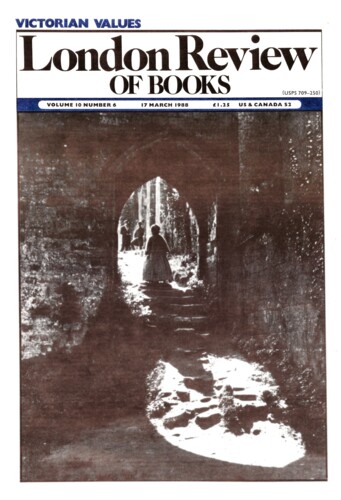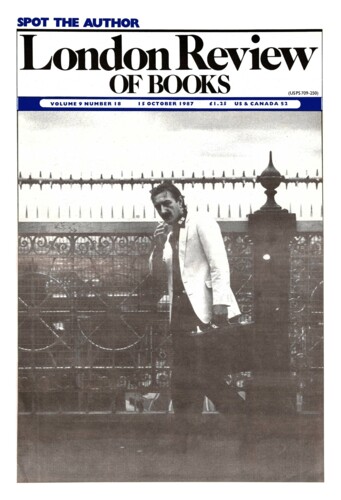Remembering the taeog
D.A.N. Jones, 30 August 1990
Rightly admired as a critic, an interpreter of ‘culture and society’, Raymond Williams was disappointing as a writer of fiction. The Eggs of the Eagle is the second volume of ‘People of the Black Mountains’, his uncompleted ‘historical novel’. There are 17 short stories or sketches, rather dismal slices of life in south-eastern Wales, between the Wye and the Usk: they are set in six different centuries, from AD 82 to 1415. There is a thin linking narrative about a youth in the 1980s who meditates on the history of this Welsh border-country, while searching for Elis, his grandfather, lost and injured in the mountains. The author had intended to continue the historical trail through five more centuries, concluding with Elis’s service in the Second World War. Perhaps Raymond Williams identified himself with poor old Elis.
